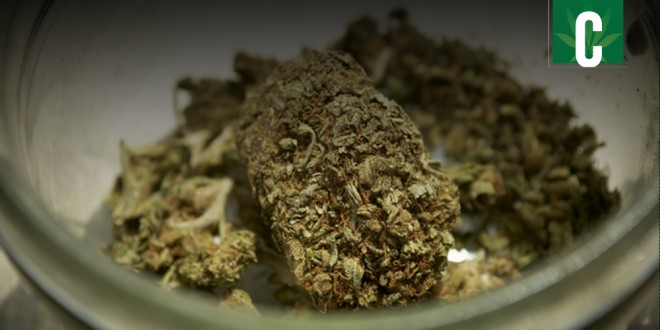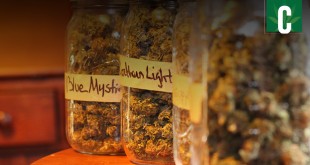When it comes to marijuana legalization in California, all eyes are focused on a well-funded petition backed by a tech billionaire and big national reform groups. But there are other proposals, and a new report examined one of them. It’s unlikely the plan will make the ballot, but it demonstrates how cannabis advocacy can go wrong.
 It’s called the Marijuana Control, Legalization, and Revenue Act (MCLR), and it’s one of several competing ballot petitions. It has little in the way of financial support, meaning it would be nearly impossible to get it on the statewide ballot in November.
It’s called the Marijuana Control, Legalization, and Revenue Act (MCLR), and it’s one of several competing ballot petitions. It has little in the way of financial support, meaning it would be nearly impossible to get it on the statewide ballot in November.
But there’s something else wrong with the MCLR. Its proponents boast that it is the first such petition to fit on a single sheet of paper, and that itself is a sign of trouble. That’s because activists have failed to flesh out their proposal with much in the way of detail.
As a result, the MCLR includes almost no limits on a legal marijuana industry. Among other shortcomings, it would impose only a small fine on people who sell the drug to children.
Lacking adequate rules and regulation
California currently imposes a prison sentence of between three and seven years for selling to a minor. But the backers of the MCLR want to remove that provision – and apparently they don’t plan to replace it with anything serious.
In total, the proposed law would repeal seven sections of the state’s Health and Safety Code. The idea, apparently, is to create a system of “true legalization” that removes all penalties for marijuana possession.
The sections outline penalties for cannabis possession, cultivation, sale, and trafficking, as well as asset forfeiture provisions and sale to children. The backers of the MCLR want to repeal all of them.
The underage sale section in the existing law provides: “Every person 18 years of age or over who unlawfully sells any marijuana to a minor under 14 years of age shall be punished by imprisonment in the state prison for a period of three, five, or seven years.”
MCLR seeks to reduce penalties for selling to minors
 The MCLR has proposed a replacement for this provision that would create a new section of the Health and Safety Code. It reads: “Violations of any statute or regulation enacted or promulgated to implement this Act shall not constitute a felony and shall not be punished by imprisonment.”
The MCLR has proposed a replacement for this provision that would create a new section of the Health and Safety Code. It reads: “Violations of any statute or regulation enacted or promulgated to implement this Act shall not constitute a felony and shall not be punished by imprisonment.”
Other than that, there is no provision for punishing adults who sell to children. If a dealer is caught selling pot to a minor, he would be subject only to a misdemeanor charge punishable by a civil fine.
The MCLR is an example of the worst inclinations of some legalization supporters. Many grassroots activists oppose any regulation, tax, or limitations on cannabis, even though this approach would certainly fail at the ballot box.
Supporters of the plan could point to alcohol laws in California, which impose only a $1,000 fine for selling or giving it to kids. But they miss a key point: Cannabis isn’t legal yet, and voters are unlikely to pass a law with such a light penalty.
Voters unlikely to support a proposal facilitating minor consumption
That’s especially true when it comes to underage sales. The idea of unbridled legalization appeals strongly to many activists, but it would not appeal to the vast majority of voters.
Apparently the people behind the MCLR believe a short petition is better than a long one, especially the 62-page petition filed by supporters of the Adult Use of Marijuana Act, the proposal most likely to pass.
It’s unclear why the MCLR people are so insistent on a short ballot item, but the group’s focus on brevity has clearly led them astray. Voters may want legalization, but they are far from ready for anarchy.
What do you think: should the MCLR make the statewide ballot in November? Comment below.
 California Marijuana Market Breaking "Marijuana News" from CA
California Marijuana Market Breaking "Marijuana News" from CA





